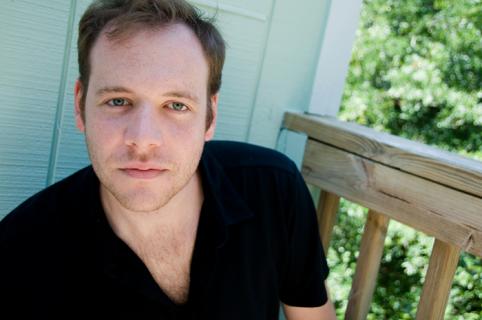
John Cotter is a founding editor at the review site Open Letters Monthly, where he is part of a team of editors publishing critical work on contemporary novelists, poets, and translators. His essay "Losing Music" about art, identity, and a very scary illness, is unforgettable. John has taught at Lighthouse since 2011, and in 2013 I was lucky enough to snag a seat in John's Reading as a Writer class, Flaubert's Mastery. The class read The Three Tales and Madame Bovary, and gained some historical and literary context along the way. Since then I've operated with a greater knowledge of craft highly beneficial to my fiction.
John teaches the 4-Week Reading as a Writer: Herman Melville's Moby Dick beginning January 15.
DM: What excites you the most about Moby Dick? Is it its literary genealogy going both forward and backward in time--John Milton and Paradise Lost looking back, Cormac McCarthy and Blood Meridian looking forward? Is it its quotability? Its themes--obsession and class exploitation, to name but two? Or is it simply the novel's general badass-ness?
JC: Well, you get at something heavy here, which is that the book has so many facets you can't possibly see them all from one vantage. That's one of the reasons I love being a part of these Reading-as-a-Writer classes: everyone who shows up comes to the text with a different perspective, and when all those perspectives catch the light at once ...
I mean, Moby Dick's not even really a novel, is it? It's a prose poem and a dirge and an existential sermon and a half-mad scientific treatise. It's also a very artfully constructed fun-house (or house-of-horrors) full of trap doors and secret passages and dark reveals.
What excites me and has always excited me is the ferociousness of Melville's intellect (so ferocious it could be autophagous) and the depth and dexterity of his prose. There's no not getting lost there. And it's the best kind of lostness.
DM: Speaking of the quotability of Moby Dick, can you tell us about your favorite line and its context?
JC: Recently, I found myself thinking a lot about that line "I felt a melting in me. No more my splintered heart and maddened hand were turned against the wolfish world." It's in the chapter "A Bosom Friend." Here Ishmael's cannibal BFF, the harpooner Queequeg, kneels to pray before a heathen idol; and Ishmael -- who's only just returned from a barn-burning Christian service replete with its own killer lines -- kneels down beside him.
"I'll try a pagan friend," he thinks, "since Christian kindness has proved but hollow courtesy." American book-chat was more filled with religious fanatics then and so this chapter essentially put an end to Melville's career as a novelist. And for what? For what's actually a very beautiful and well-reasoned sentiment. What is worship of God, after all? Ishmael wonders, but obedience to the golden rule? And if Ishmael is truly doing unto others as he would have them do unto him, then he must join with Queequeg in kissing the idol just as he would want Queequeg to come to Sunday service with him. Surely, no God as powerful as the one he's just heard about in church could be jealous of a piece of wood.
If he wants a real experience of love, then, he decides "I must turn idolator," Anyway, what struck me this time was what an eerie parallel this is to Huck Finn's "alright then, I'll go to hell," rather than support the (then-godly) institution of slavery. In both cases, the speakers turn their backs on the good opinion of society for the sake of not only friendship but of otherness. Jim is black and Queequeg is a Pacific Islander. It's wonderful to have this strain in our literature, and it really does speak to what's best about America.
DM: A reader must unpack Moby Dick. Melville seems to be working with everything from the homoerotic (Ishmael's "marriage" to Queequeg, and the spermaceti/deckhand scene when the men of the Pequod join hands to squeeze out the sperm) to Manifest Destiny--the whalers pushing ever-west, murdering all races of whale as they go. How does a reader start the process of unpacking?
JC: As bestselling Buddhists say, you start where you are. What's so wonderful about a class like this one is the way everybody has a different point of interest -- everyone brings some new observation to the discussion. In fact I'm going to ask everyone -- during the second class -- to come in with a passage they'd like to talk about, something they admire or puzzle over or that lights a spark. My job in the meantime is to store up information (which means learning my port from my starboard but also the details of Melville's life, the book's publication history, etc.) so that I can field any questions that arise.
One thing I'll be sure we spend some time on is the nature of Melville's prose -- eloquent enough that we have to take it seriously but just overheated enough that he can always beg-off by claiming that his tongue was in his cheek. I've also been reading about the political period -- the Jacksonian optimism that ruined Melville's grandfather but nonetheless drove his grandchildren. Was Melville a Jacksonian? I'm still making up my mind.
I'd love also to talk about the whiteness and eerie facelessness of the whale, the significance of naming in the book (the Pequod, Ahab, Starbuck) and also -- and this doesn't get nearly enough consideration in the secondary literature -- what a masterfully constructed work of art the book is (note, for example, how perfectly the book's last line explains its first).
I have to say I'm really looking forward to this.
Dan Manzanares is a published poet and aspiring novelist. His day job as Lighthouse's Creative Curator keeps him busy coordinating volunteers and managing community events.


